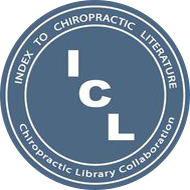Background: The autonomic nervous system has traditionally been thought of as a dual system, containing a parasympathetic portion (used for rest/digest), and a sympathetic portion (used for fight/flight). This split concept changed in 1995 when Porges introduced the Polyvagal Theory. The third branch is the social engagement system, controlled by the myelinated portion of the vagus nerve. Addressing the vagus nerve with chiropractic care might prove to be beneficial for children suffering from neurodevelopmental issues.
Methods: Four children with neurodevelopmental issues were adjusted with a parasympathetic vagal-centric focus. Force application was delivered using techniques such as Network and tonal-based cranial work.
Results: All four children showed measurable improvement not just in physical abilities but also in social engagement.
Conclusion: The social engagement system controlled by the vagus nerve has significant potential ramifications for a child with neurodevelopmental issues. Analyzing and using chiropractic force applications within the parasympathetic system may be beneficial for special needs children.
Author keywords: Chiropractic, vertebral subluxation, adjustment, spinal manipulation, cranial, Pediatric, Vagus Nerve, Autistic Disorder, Neurodevelopmental disorders
This abstract is reproduced with the permission of the publisher; full text is available by subscription.
|
